| Title | Patients with Cognitive Impairment in Parkinson's Disease Benefit from Deep Brain Stimulation: A Case-Control Study. |
| Publication Type | Journal Article |
| Year of Publication | 2023 |
| Authors | Block, CK, Patel, M, Risk, BB, Staikova, E, Loring, D, Esper, CD, Scorr, L, Higginbotham, L, Aia, P, DeLong, MR, Wichmann, T, Factor, SA, Yong, NAu, Willie, JT, Boulis, NM, Gross, RE, Buetefisch, C, Miocinovic, S |
| Journal | Mov Disord Clin Pract |
| Volume | 10 |
| Issue | 3 |
| Pagination | 382-391 |
| Date Published | 03/2023 |
| ISSN | 2330-1619 |
| Abstract | BACKGROUND: Deep brain stimulation (DBS) for Parkinson's disease (PD) is generally contraindicated in persons with dementia but it is frequently performed in people with mild cognitive impairment or normal cognition, and current clinical guidelines are primarily based on these cohorts. OBJECTIVES: To determine if moderately cognitive impaired individuals including those with mild dementia could meaningfully benefit from DBS in terms of motor and non-motor outcomes. METHODS: In this retrospective case-control study, we identified a cohort of 40 patients with PD who exhibited moderate (two or more standard deviations below normative scores) cognitive impairment (CI) during presurgical workup and compared their 1-year clinical outcomes to a cohort of 40 matched patients with normal cognition (NC). The surgery targeted subthalamus, pallidus or motor thalamus, in a unilateral, bilateral or staged approach. RESULTS: At preoperative baseline, the CI cohort had higher Unified Parkinson's Disease Rating Scale (UPDRS) subscores, but similar levodopa responsiveness compared to the NC cohort. The NC and CI cohorts demonstrated comparable degrees of postoperative improvement in the OFF-medication motor scores, motor fluctuations, and medication reduction. There was no difference in adverse event rates between the two cohorts. Outcomes in the CI cohort did not depend on the target, surgical staging, or impaired cognitive domain. CONCLUSIONS: Moderately cognitively impaired patients with PD can experience meaningful motor benefit and medication reduction with DBS. |
| DOI | 10.1002/mdc3.13660 |
| Alternate Journal | Mov Disord Clin Pract |
| PubMed ID | 36949802 |
| PubMed Central ID | PMC10026300 |
| Grant List | P41 EB018783 / EB / NIBIB NIH HHS / United States R01 MH120194 / MH / NIMH NIH HHS / United States |

